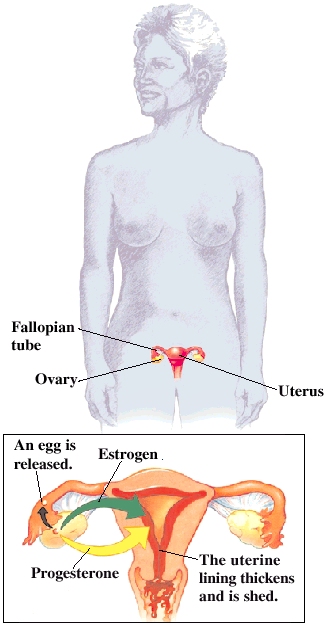Hormones Control Your Menstrual Cycle
Hormones and Your Menstrual Cycle
A woman's menstrual cycle (monthly period) is controlled by changing levels of certain hormones. These hormones travel through the blood. Two hormones, estrogen and progesterone, play a big role in the menstrual cycle. They are made in the ovaries (where eggs are stored).

The menstrual cycle
Hormones help prepare the uterus for pregnancy. At the start of the cycle, the 2 ovaries produce estrogen. This makes 1 ovary release an egg, and signals the production of progesterone. The egg travels through the fallopian tube. Then it enters the uterus. If the egg is fertilized, a woman becomes pregnant. If this doesn't happen, the egg is shed along with the uterine lining. This bleeding is called menstruation.
Symptoms you may have
Days 1 to 7:
-
Menstrual bleeding
-
Cramping
-
Headache
Days 8 to 14:
-
Increased and thickened vaginal mucus
-
Higher energy
Days 15 to 28:
-
Bloating
-
Tiredness
-
Cramping
-
Irritability
-
Breast tenderness
Updated:
March 15, 2019
Sources:
Physiology of the normal menstrual cycle, Up To Date
Reviewed By:
Freeborn, Donna, PhD, CNM, FNP,Sacks, Daniel, MD, FACOG